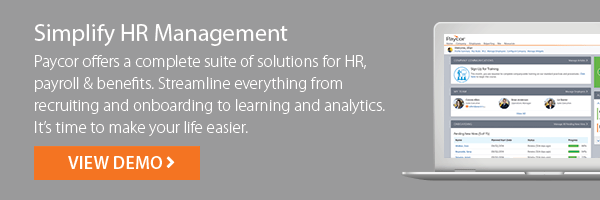Ineffective labor management is one of the top money wasters in most businesses. From unmanaged overtime to underutilized employees, not managing your labor properly can cost your organization an arm and a leg.
To help your company become more strategic on labor management, consider these five best practices:
- Hire the Right Employees
It might sound like a no brainer but having the right employees on your team is a huge step toward a thriving business. Make sure your hiring process is designed to bring in high-quality, engaged employees. Disengaged employees are a burden to profits and cost an average of one-and-a-half times their salary to replace. You can’t afford to neglect employee engagement.
- Invest in Training and DevelopmentProperly trained employees are more efficient and get work done faster (no overtime expenses!). A thought-out personal development plan gives your employees the opportunity and direction they need to improve their skills so they can advance in the workplace. A PDP helps make your team more valuable and informed, thus improving employee satisfaction, morale and retention.

- Create a Process and Build a Relationship
Make sure you have effective practices for your employees to follow. This starts by providing challenging but manageable work for employees to keep them engaged while avoiding the chance of overtime and burnout. Also, it’s key for managers to build a solid relationship with a new employee. Show an interest in his/her life and communicate expectations to help eliminate potential confusion and encourage engagement. - The Right Safeguards
There are a number of compliance requirements in the workplace—employee classification and state and federal laws change all the time—so be sure to regularly audit your practices and know there are a number of tools to help ensure your organization is compliant. Time and attendance software as well as custom reporting can help you avoid costly lawsuits.
For instance, if an employee misrepresents his/her hours, you can still be held accountable for those overtime expenses. Which is why it’s important to keep detailed records of any times you and the employee disputed hours worked because you’ll need the documentation to prove your side of the story. - Credible and Consistent Leadership
An engaging and accessible leader is a valuable asset to any organization. You want your employees to feel comfortable approaching a leader on a one-to-one basis rather than turning to a lawyer, a union or the EEOC when an issue arises. Consistency in a leader’s decision making helps build trust with employees, as they’ll be able to anticipate the outcome.
To be more strategic about your labor management, make sure you have highly engaged employees following an efficient process to make your organization as effective as possible. Partnering with the right HR partner and using time and attendance solutions to accurately track hours worked and overtime will help protect your company from potential wage lawsuits and mitigate HR compliance risk.










